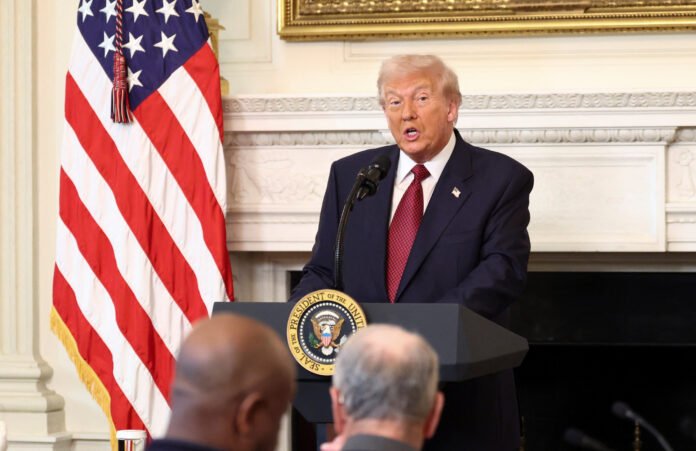President Donald Trump on Saturday proposed a direct payments plan for Affordable Care Act subsidies as a potential solution to the ongoing government shutdown. He urged Senate Republicans to send federal payments that usually go to insurers directly to Americans.
Trump suggested in a Truth Social post that the money currently sent to insurance companies should instead allow people to purchase their own health care. He claimed this approach could provide better coverage while leaving citizens with extra funds. However, he did not provide details on how the plan would work.
The proposal comes one day after Senate Republicans rejected a Democratic deal to reopen the government. The shutdown, which began on October 1, is now the longest in U.S. history. Democrats had offered to maintain ACA subsidies for at least one year if Republicans dropped their objection to including longer-term Obamacare tax credits in a stopgap funding bill.
These subsidies benefit more than 20 million Americans and are set to expire at the end of December if Congress does not act. Senate Majority Leader John Thune labeled the Democrats’ proposal a “non-starter.”
Meanwhile, congressional lawmakers remain deadlocked. Democrats want a funding bill that protects health care subsidies. Republicans insist the government must reopen first before negotiating other issues. The disagreement has stalled progress, leaving millions of Americans uncertain about future coverage.
In addition, Trump reiterated calls to terminate the Senate filibuster, which requires 60 votes to pass most legislation. The GOP currently holds 53 Senate seats, while Democrats hold 45, and two independents caucus with them. Senate Republicans have opposed changing the rule, but Trump claimed he is “making progress” on the issue.
Critics question the feasibility of Trump’s direct payments plan, citing logistical and legal challenges. White House officials have not provided details, and congressional leaders from both parties have not commented on the proposal.
The direct payments plan underscores growing political tension over health care and federal funding. Lawmakers will need to resolve these disputes quickly to end the shutdown and restore critical services. The outcome will impact millions of Americans relying on ACA subsidies for affordable health care.
As negotiations continue, all eyes remain on Republican and Democratic lawmakers to see whether they can reach a compromise, implement a direct payments plan, and finally reopen the government.
For more business updates, visit DC Brief.


